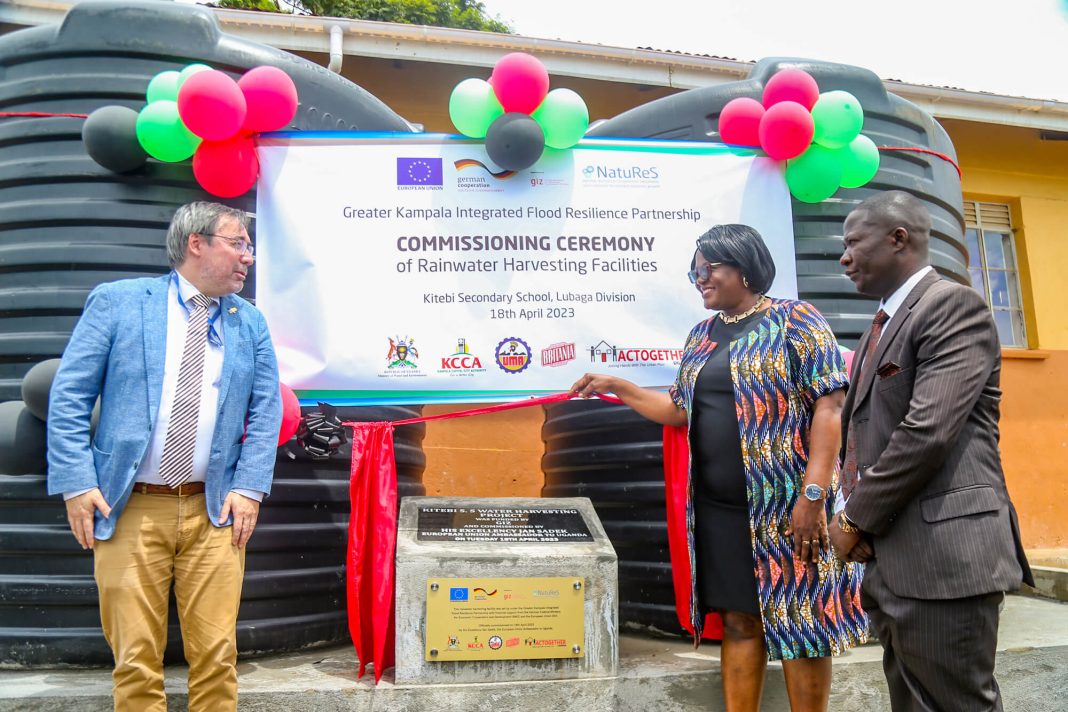Kampala Capital City Authority (KCCA) has launched a pilot rainwater harvesting system at Kitebi Secondary School in Lubaga Division, Kampala, as part of the Greater Kampala Integrated Flood Resilience (GKIFR) Partnership project.
The project aims to promote the integration of nature-based solutions in urban infrastructure planning for enhanced flood resilience and sustainable socio-economic development.
The GKIFR Partnership project has identified seven pilot sites, including Lubiri Secondary School, Kitebi Primary School, Nakawa Market, Usafi Market, Nateete Market, and Kampala City Abattoir.
During the commissioning ceremony at Kitebi Secondary School, KCCA Executive Director Dorothy Kisaka emphasized the importance of rainwater harvesting in Kampala City’s flood resilience and stated that rainwater harvesting should be implemented at all large public buildings, such as schools, shopping malls, and markets.
Kisaka highlighted that flood resilience is one of the key opportunities for an inclusive, resilient, and well-planned city that provides economic opportunities for all.
Kitebi Secondary School received an 80,000 liter rainwater harvesting tank that will improve the water needs of over 3,000 students.
The GKIFR Partnership project is a collaboration between KCCA, the Ministry of Water and Environment, Uganda Manufacturers Association, Britannia Allied Industries Ltd, and ACTogether Uganda, implemented with support from the Natural Resources Stewardship Program (NatuReS).
NatuReS is a global GIZ program that aims to promote multi-stakeholder collective action for sustainable management of shared natural resources. The NatuReS Uganda program is funded by the European Union (EU), the German Federal Ministry for Economic Cooperation and Development (BMZ), and the UK Department for International Development.
Lennart Deridder, the Head of the Inclusive Green Economy Team at EU Uganda, explained that the program focuses on supporting and strengthening local public-private-civil society partnerships to jointly address common natural resources risks and threats for improved livelihoods and economic development.
Mohammad Kamulegeya, the head teacher of Kitebi Secondary School, expressed his gratitude to KCCA for the great partnerships that are aimed at helping the schools and the community. He thanked the ED for timely payment of staff salaries and other government releases and requested for more support, such as constructing a new classroom block to accommodate the high number of students.
Rainwater harvesting entails capturing runoff from the roof of a building or from spaces and channeling it into storage structures constructed above or below ground for reuse or slow release. The harvested water is used for various tasks such as cleaning, washing, irrigation, or as process water with or without treatment. Overall, the rainwater harvesting system is an essential step towards a more sustainable and resilient future for Kampala City.























